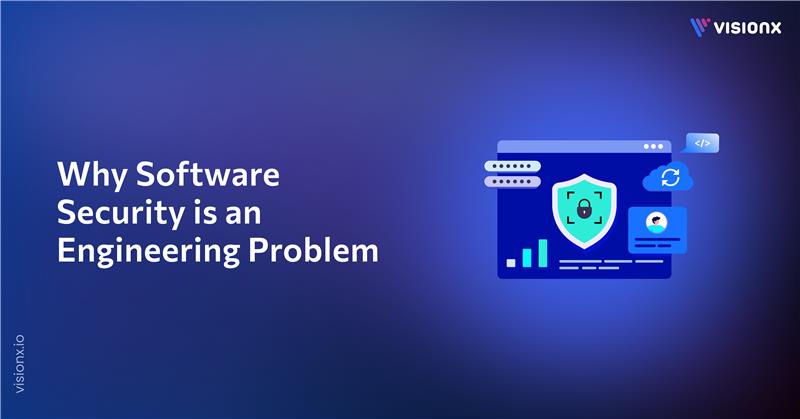Launching an app successfully is more than just pushing it to the app store. It requires meticulous planning, from market research to testing and post-launch activities. With over 4 million apps available between Google Play and Apple’s App Store, standing out can be challenging. Research shows that over 80% of apps are abandoned after just one use, making a solid launch critical to long-term success.
The global market for mobile app development is expected to reach USD 753.34 billion by 2033, according to recent research. This massive growth underscores the importance of launching an app with a well-thought-out strategy. Whether it’s a game, productivity tool, or shopping app, following the proper steps can make or break your app’s success.
In this guide, we’ll walk you through how to launch an app successfully using a checklist covering everything from pre-launch preparation to post-launch activities. Let’s dive into the key steps to ensure your app makes an impactful entrance into the market.
1. Pre-Launch Preparation
Before hitting your app’s “go live” button, thorough pre-launch preparation is essential. This phase will ensure that everything is ready when the app hits the market.
a. Market Research
The first step in launching an app is to understand your market. Conduct thorough market research to find your target audience, competitors, and industry trends. This research will help you fine-tune your app’s strategy to align with the needs of your potential users.
- Target audience identification: Knowing your user base is critical. Define your ideal customer persona based on demographics, needs, and preferences.
- Competitor analysis: Study competing apps to identify their strengths and weaknesses. What features do they offer? Whether they rely on cross-platform apps or separate apps. How can your app offer something better or different? This will help you carve out a competitive edge.
- Market demand validation: Use surveys, interviews, or MVP launch to ensure there is demand for your app. You don’t want to launch an app that no one is interested in.
b. Define Goals and KPIs
Next, establish clear goals for your app’s success. It is critical to establish measurable goals that will serve as benchmarks after the app’s launch. Key performance indicators (KPIs) may include metrics such as download count, user retention, and average session length. Your goals should be in line with your overall business objectives. For example, is your primary focus on increasing your user base or generating revenue?
c. Plan Your Monetization Strategy
Before you move forward with the launch process, it’s crucial to define how your app will make money. Whether it’s through in-app purchases, a subscription model, ads, or a freemium version, your monetization strategy should match your target audience’s behavior. For instance, gaming apps often rely on in-app purchases, while productivity apps might thrive with a subscription model.
d. Create a Marketing Strategy
A well-planned marketing strategy is important for the success of your app launch. You need to start generating buzz before the actual launch day. This can include content marketing (blog posts, social media updates), influencer partnerships, and even teaser campaigns. Building a community around your app early on will help ensure a more enthusiastic reception when it officially launches.
You should also prepare for App Store Optimization (ASO), which ensures that your app ranks well in search results on app stores. Use relevant keywords in app’s title, description, and tags.
e. Test the App Thoroughly
Before you can launch an application, you must ensure that it’s free from bugs and provides a smooth user experience. Conduct beta testing with a group of users who can give you real feedback. Compatibility testing across different devices and platforms is crucial as well since apps need to perform well on various screen sizes and operating systems. Fix any issues and ensure that your app is intuitive, fast, and user-friendly.
2. Building the App Store Presence
Your app’s store presence is often the first impression users get, so optimizing this is crucial. This involves creating an engaging, polished app listing that grabs attention and convinces users to download the app.
a. App Store Optimization (ASO)
App store optimization (ASO) is essential to make your app discoverable. This process focuses on refining your app’s title, description, and keywords for better visibility on platforms like Google Play and Apple’s App Store. Choose a catchy, descriptive app title that communicates what your app does. The description should highlight key features, benefits, and any unique selling points, with relevant keywords strategically placed.
Screenshots and demo videos also play an important role in ASO. High-quality visuals showing your app in action can entice users to hit the download button. Make sure to include clear, engaging screenshots and a short demo video that highlights key features of the app.
b. Prepare Press Kits and Release Notes
To boost your app launch efforts, prepare press kits for bloggers, influencers, and journalists. Your press kit should include app details, high-quality images, a demo video, and information about the launch date. Writing clear, concise release notes is also important. These notes should outline the key features of the app, what users can expect, and any unique functionalities. A professional press kit and strong release notes will enhance your launch’s visibility and credibility.
c. Secure Early Reviews and Ratings
Before the official launch application date, reach out to beta testers and early users to leave reviews and ratings. Positive reviews and high ratings can have a significant impact on an app’s initial reception. A strong review base at launch will help boost your app’s visibility and credibility in the app store.
3. App Launch Day Checklist
Launch day is the most critical point in your launch process, and everything must be perfectly timed and coordinated to ensure success.
a. Launch at the Right Time
Choose an optimal time to launch your app. Research shows that certain days of the week and times of the day can yield better results in terms of downloads and user engagement. For example, weekdays might work better for business apps, while weekends are ideal for entertainment and gaming apps. Timing is especially important if you’re launching globally, pay attention to time zone differences to capture users in various regions.
b. Monitor Performance on Launch Day
Once you’ve launched your app, monitor its performance closely. Keep an eye on the number of downloads, user reviews, and ratings. This data will give you an immediate sense of how the app is being received. If there are any technical issues or bugs, be prepared to resolve them quickly.
Analytics tools like Google Analytics or Firebase can be used to track key metrics such as user acquisition, session length, and crash reports. This will help you make data-driven decisions in the days following the app launch.
c. Promote Your App Aggressively
Your marketing efforts should be in full swing even on launch day. Run paid ad campaigns on platforms like Google Ads, Facebook, and Instagram. Push email campaigns to your subscriber base, and send out push notifications if you already have an audience from a previous product.
Additionally, leverage social media to engage with potential users. Create social media posts, utilize hashtags, and encourage user-generated content to build excitement around your app. This will help spread the word organically and give your app a boost in visibility.
4. Post-Launch Activities
Even after the launch process, there’s a lot of work left to do. Post-launch activities are crucial for maintaining momentum and ensuring long-term success.
Monitor User Feedback and Performance Metrics
Once your app is live, you need to monitor how users are interacting with it. Analyzing user behavior will help you identify areas that need improvement. Focus on metrics like user engagement, retention rates, and in-app behavior to understand how your app is being used.
Gather user feedback through surveys or monitoring reviews in the app store. Constructive feedback can help you understand what’s working well and what needs to be improved. Make sure to respond to any negative feedback and fix issues as quickly as possible.
Post-Launch Marketing and Updates
Keep your marketing efforts going strong after the app launch. Continue promoting your app via social media, email marketing, and influencer partnerships. Consider offering promotions or discounts within the app to encourage user engagement and retention.
Additionally, roll out regular updates to address user concerns, fix bugs, and introduce new features. Keeping your app fresh and up-to-date will help maintain user interest and prevent churn.
5. Common Pitfalls to Avoid
Even with the best plans, things can go wrong. Here are some common pitfalls to avoid during your app launch.
Inadequate Testing
One of the most common mistakes during the launch process is not performing enough tests. A buggy app can lead to poor reviews and user drop-offs. Conduct thorough testing on multiple devices and operating systems to catch any compatibility issues before launch.
Insufficient Marketing Preparation
Another pitfall is not having a solid marketing plan in place. Many apps fail simply because they don’t get enough visibility. Start building buzz weeks before you launch, and ensure you have a comprehensive marketing strategy that continues post-launch.
Conclusion
Launching an app successfully is a complex process that requires careful planning and execution. From conducting market research to optimizing your app store listing and gathering early reviews, each step plays a crucial role in determining the outcome of your app launch. Follow this complete checklist to ensure that you cover all your bases, avoid common pitfalls, and give your app the best chance for success.
By understanding how to launch an app, focusing on key details, and continuously improving based on user feedback, you’ll set yourself up for a strong, successful launch application that resonates with your target audience.
VisionX is a leading mobile app development company providing services for Android, iOS, and cross-platform. We can help you design, develop, test, and launch your app successfully, no matter what industry you belong to.


